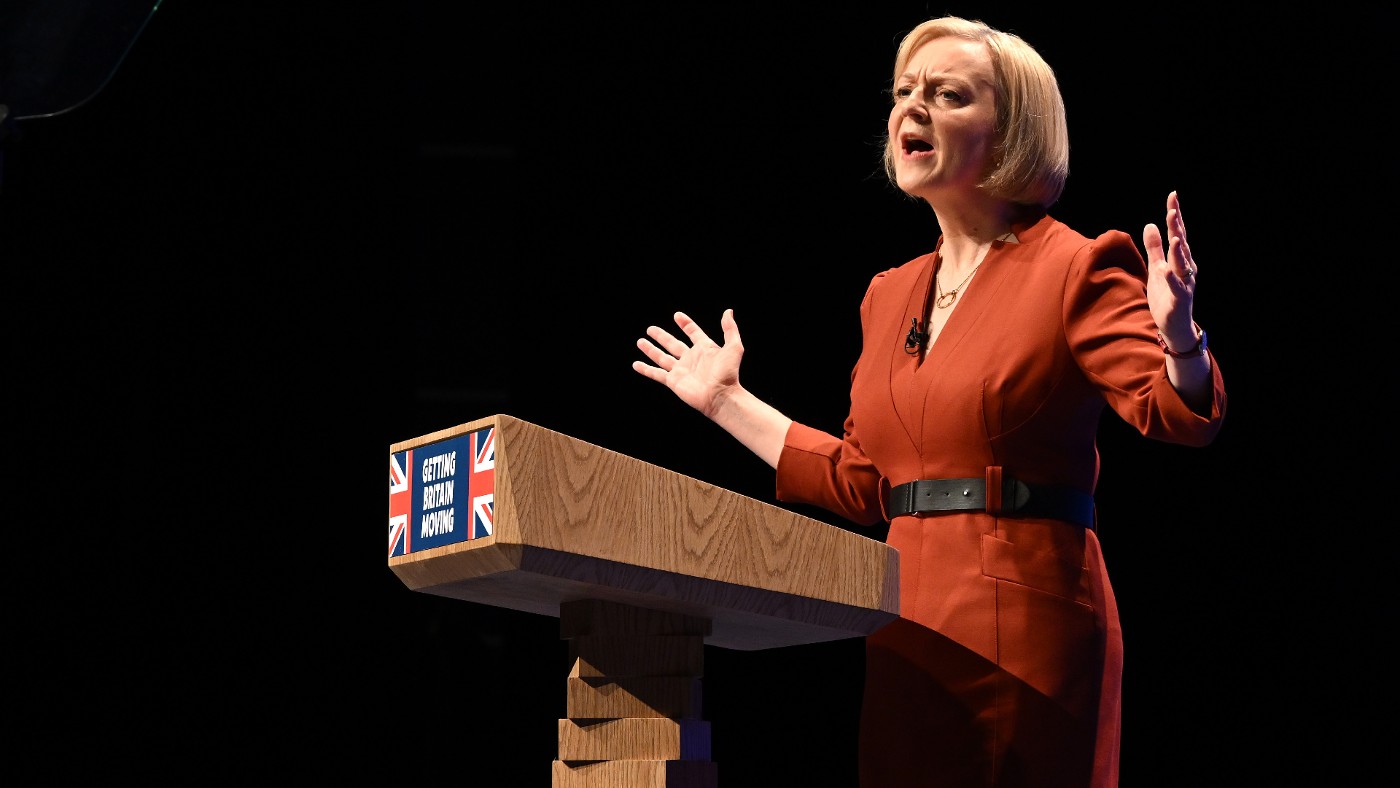The ‘anti-growth coalition’: who are Liz Truss’s new enemies?
PM says environmental activists, unions and podcasters are all holding Britain back

A free daily email with the biggest news stories of the day – and the best features from TheWeek.com
You are now subscribed
Your newsletter sign-up was successful
Liz Truss has hit out at an “anti-growth coalition” of critics including environmentalists, podcasters, the “Twitterati” and even taxi passengers from North London.
“I will not allow the anti-growth coalition to hold us back,” the prime minister told her party faithful at the Tory conference yesterday. “Labour, the Lib Dems and the SNP, the militant unions, the vested interests dressed up as think tanks, the talking heads, the Brexit deniers and Extinction Rebellion.”
Truss claimed that members of the coalition “prefer protesting to doing”, as they “taxi from north London townhouses to the BBC studios to dismiss anyone challenging the status quo”. She added that “from broadcast to podcast”, the anti-growth coalition “peddle the same old answers” of “more taxes, more regulation and more meddling”.
The Week
Escape your echo chamber. Get the facts behind the news, plus analysis from multiple perspectives.

Sign up for The Week's Free Newsletters
From our morning news briefing to a weekly Good News Newsletter, get the best of The Week delivered directly to your inbox.
From our morning news briefing to a weekly Good News Newsletter, get the best of The Week delivered directly to your inbox.
The prime minister used the word “growth” 29 times during her 34-minute keynote speech, and is also “clearly very taken with the idea of ‘the anti-growth coalition’”, which she mentioned six times, wrote The Guardian’s Peter Walker.
What did the papers say?
The Daily Express reported that the PM was “cheered on” as she blasted critics “looking to derail her vision for the country”. Truss “successfully ridiculed the ‘anti-growth coalition’”, agreed Stephen Glover in the Daily Mail.
Mark Littlewood, director of the Conservative-leaning Institute of Economic Affairs, told ITV News that Truss had “drawn her battle lines” and “invented a new catch phrase of British politics”.
Members of the coalition prefer “talking on Twitter to taking tough decisions”, the PM said. “Whether she had certain backbench Tory MPs in mind,” Andrew Lilico wrote in The Telegraph, “she was at least mainly referring to media talking heads”.
A free daily email with the biggest news stories of the day – and the best features from TheWeek.com
The main “problem” with the anti-growth coalition, said Henry Hill for the i news site, “is that she leads it”. None of the “villains she listed” are “more staunchly opposed to the sort of policies that would deliver transformative growth than the alliance of older voters and southern homeowners that form the core of the Tory coalition”, he added.
While her conference speech “gave us no new policies”, said Walker in The Guardian, Truss “did give us a fresh rhetorical framing” of her unpopular economic plans as “a distinctly Brexit-reminiscent battle between plucky, patriotic reformers and a cabal of liberal, urban elitist naysayers”.
The PM “will hope she can, again as with Brexit, enlist some culture war energy into what risks otherwise being a somewhat dry economic debate” that is causing divisions within her party in the wake of Chancellor Kwasi Kwarteng’s mini budget, added Walker.
If that is her aim, it appeared to work, said Quentin Letts in The Times. “Her riff against ‘the anti-growth coalition’ of Twitterati and snoots taking taxis from their north London townhouses to denounce growth met with shouts of ‘yes!’” he wrote.
However, The Independent reported that beyond the conference hall, Truss’s anti-growth claims triggered a “furious backlash”. The CPRE countryside charity said the PM’s “disingenuous and misleading” words presented a “false choice between the economy and the environment”.
Scotland’s First Minister Nicola Sturgeon tweeted that “ranting about an imaginary ‘anti growth coalition’ is just an attempt to obscure the hard reality that the biggest brake on UK growth is Brexit – and that’s on the Tories”.
What next?
“This new ‘coalition’ includes a range of individuals you’d expect Ms Truss to be fairly cheesed off with at the moment,” said Indy100.
But along with Labour, the Lib Dems and the like, the coalition membership is “mainly the Conservative Party’s voting base”, according to Capx.
Speculation is rife about who else might be part of the coalition, with wags on Twitter suggesting bats and David Attenborough as possible candidates. The Guardian’s John Crace quipped that Truss had “declared war” on taxi passengers.
The PM’s spokesperson was also asked if healthy eating campaigner Jamie Oliver had been identified as a coalition member, after Truss said during her speech that “I’m not interested in how many two-for-one offers you buy at the supermarket”. The spokesperson responded: “I’m not going to name individuals.”
Truss told the Tory conference that “the anti-growth coalition just doesn’t get it because they don’t face the same challenges as normal working people”.
“This is confusing, though,” said HuffPost, “as the growth plan Truss and Kwarteng have unveiled mainly benefits the wealthiest in the country – not the ‘normal working people’.”
Chas Newkey-Burden has been part of The Week Digital team for more than a decade and a journalist for 25 years, starting out on the irreverent football weekly 90 Minutes, before moving to lifestyle magazines Loaded and Attitude. He was a columnist for The Big Issue and landed a world exclusive with David Beckham that became the weekly magazine’s bestselling issue. He now writes regularly for The Guardian, The Telegraph, The Independent, Metro, FourFourTwo and the i new site. He is also the author of a number of non-fiction books.